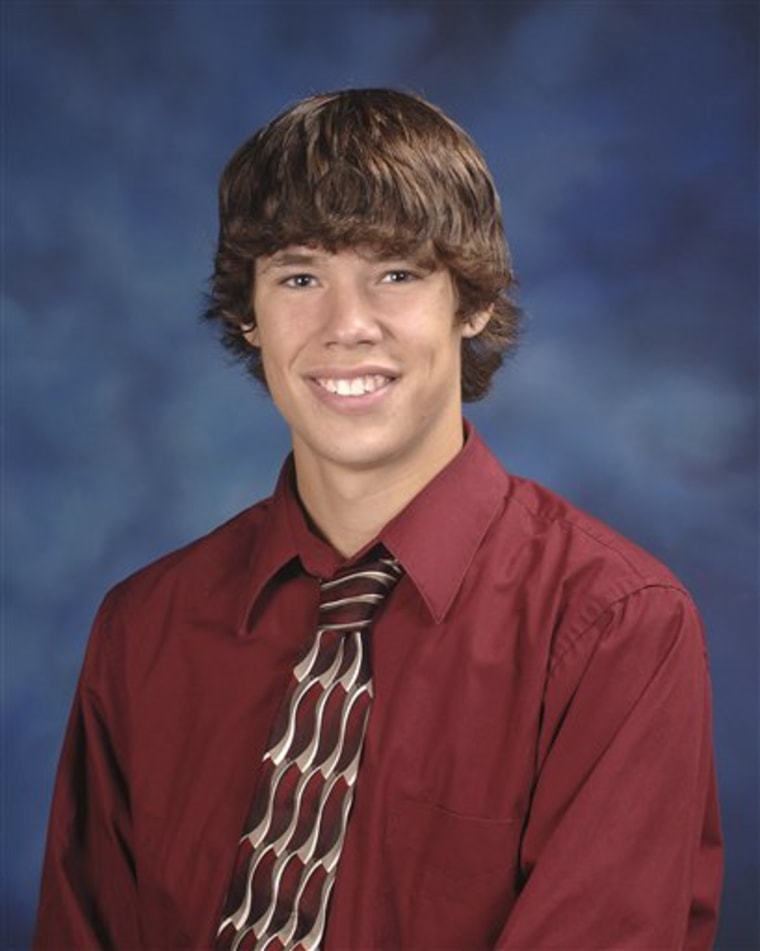By the time the game warden arrived, Kevin Kadamus was sitting down and holding his 17-year-old son in his lap, a blanket covering the boy's bloodied body.
"He was trying to talk to his son, encouraging him to hang on," Warden David Gregory said.
Jacob Kadamus couldn't hang on. With a 12-gauge shotgun, his father had mistakenly shot him in the torso on the opening day of Vermont's turkey hunting season. He died at the scene.
Now, Kevin Kadamus must cope with more than remorse and grief. The 45-year-old computer consultant and father of three has been charged with manslaughter.
It's one of the most difficult decisions prosecutors must make — whether to bring criminal charges against a guilt-ridden hunter who has killed a family member. Some prosecutors take a harder line than others.
"Everybody feels this is a tragedy, but we also have to remove emotion from the case and look at the facts," said state police Lt. J.P. Sinclair, the lead investigator. "There isn't an exemption under the law for family members being charged."
Cardinal rule: ID target
Police say Kadamus violated a cardinal rule of hunting by not identifying his target before firing in the May 1 shooting. The boy was hit after leaving his original hunting area and crossing into his father's, police said.
In August, a Minnesota man who killed his son while turkey hunting pleaded guilty to manslaughter and got a 30-day jail sentence and 10 years' probation. Anthony Klaseus was also ordered to perform 400 hours of community service.
In 2003, an Ohio man who killed his 13-year-old son with an arrow pleaded guilty to negligent homicide and was sentenced to six months in jail. Alan Foster, 40, of Middletown, shot at what he thought was a deer, hitting son Jason in the chest.
But others have been written off as accidental shootings, especially those involving two young people. In November, no charges were filed in the fatal shooting of a 15-year-old Broward County, Fla., boy shot by his 13-year-old brother while they duck hunted on Lake Okeechobee.
"There's nothing more heart-wrenching as a prosecutor, to make a charging decision when a defendant and the victim are family members, no matter what type of offense it is," said Scott Burns, a former district attorney who heads the National District Attorneys Association.
Caledonia County State's Attorney Lisa Warren, who is handling the Kadamus case, would not comment.
Kadamus, who is scheduled to be arraigned July 6, faces up to 15 years in prison. He did not respond to requests for an interview, and court officials were unaware whether he has hired a lawyer yet. Authorities said he has cooperated fully in the investigation.
'Gray-area' cases
Barry Latzer, a criminal law expert at the John Jay College of Criminal Justice in New York, said such shootings "are very tough cases, very gray-area cases."
"It sounds as if it was just a pure accident," he said. "If (Jacob Kadamus) left an area where they'd agreed they'd each hunt separately and he moved into the father's area, then the father is even less blameworthy."
But Gregory, the game warden, said he refuses to call such cases accidents.
"There's three distinct actions that have to take place: You have to aim the firearm, take the safety off and you have to pull the trigger. None of those actions are ever accidental. The simplest way to avoid an accident is to identify your target.
"I've never seen a 17-year-old boy who looks anything like a turkey," he said.
Jacob Kadamus, an outgoing three-sport athlete known as Jake, was a sophomore at Lyndon Institute, a private school.
In its first outing after his death, the baseball team played the first inning with no one in left field — Kadamus' position. Players also wore black "JK" patches on their sleeves and hung his No. 11 jersey in the dugout.
"He was always smiling, always outgoing, cheerful, friendly," said Rick Hilton, Lyndon's headmaster.
Kevin Kadamus coached his children in junior sports programs.
"He's having a very, very difficult time. He's struggling. And that word is not strong enough to say how difficult this has been for him," said Paul Wheeler, Lyndon's athletic director, who spoke at the boy's funeral.
Some in the community think Kadamus may have been punished enough already.
Asked about the police's decision to charge Kadamus, Sheffield-Wheelock Fire Chief Marc Brown — who tried to resuscitate the boy at the scene — said: "I don't think there's anything they're going to do to him that's any worse than what he's feeling."
